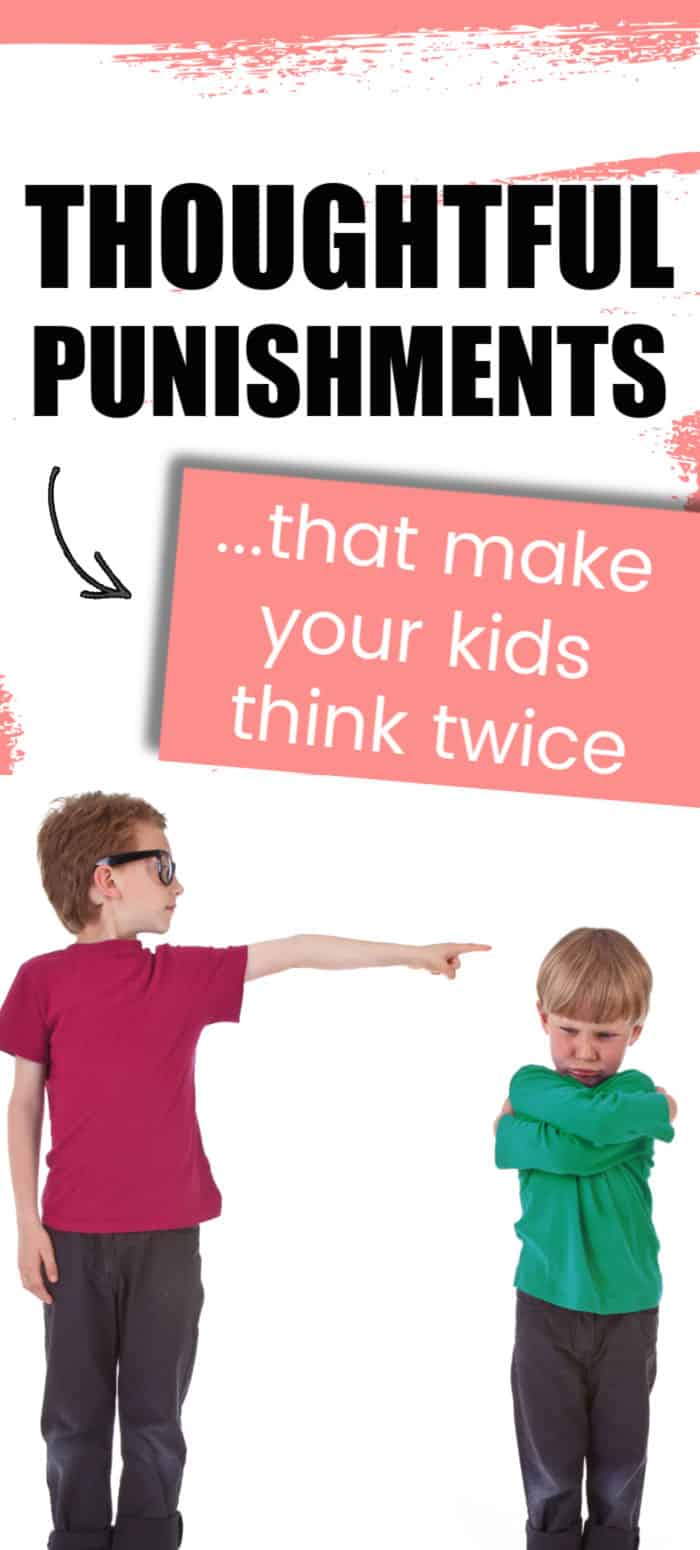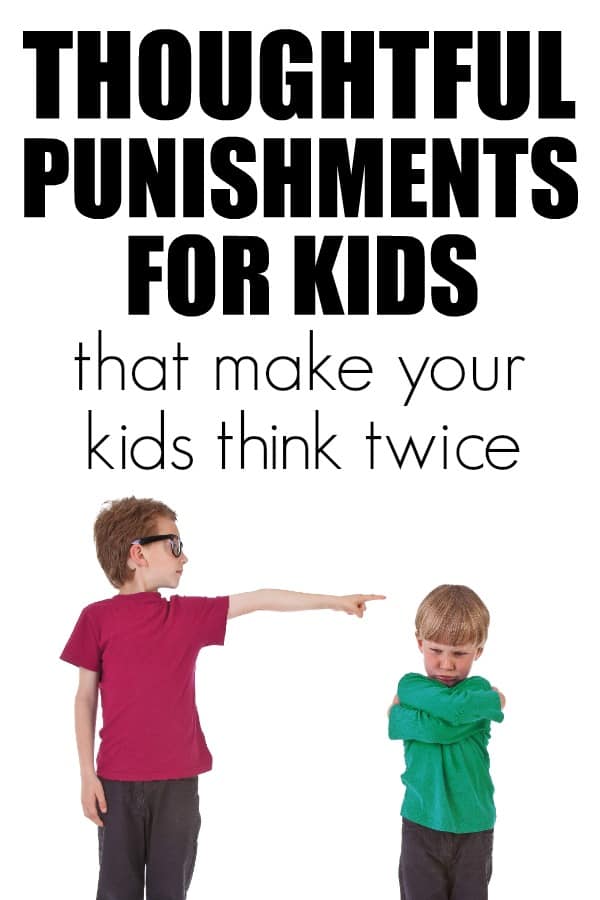Are thoughtful punishments that make your kids think twice possible? Is there a way to keep kids from repeating unacceptable behavior? After a lot of trial and error, I believe there is.
As a mom of three, I have had my fair share of times when punishments and consequences had to be doled out. While I firmly believe that children must be allowed to be children, some behaviors are unacceptable in our home, and when we are out in public.

I look at the long game when it comes to behavior management and punishments. I want to teach my kids how to behave now so that they will grow to become the successful, positive adults I know they were born to be.
And that begins by teaching them not to continually make the same mistakes or display the same unacceptable behavior time and again.
Related Post: Smart Punishments When Time Out No Longer Works
But finding punishments that make them think twice about their actions and help prevent them from doing the same thing again can be tricky.
I do not believe in spanking or physical punishments, so those have never been an option in our home. However, I have found three punishments that have proven to curb repeat behavior and make my kids think about their actions in a whole new way.
I hope they work for you and your family!
Effective Punishments for Kids
1. Letters of Apology
When it is time to hand down a punishment or consequence, not only do I want my kids to understand that their behavior was unacceptable, but I also want them to realize that it has an impact on other people.
Teaching children that their actions can make someone else’s life harder is vital because it helps them develop empathy and compassion. So, one of the most effective punishments to get my kids to think twice about repeating their actions is to have them write an apology letter.
Simply stating, “I’m sorry,” has no real effect. Instead, in their apology letters, I have my children apologize, acknowledge their behavior, communicate the impact of their behavior on the person they are apologizing to, and come up with a solution for how they can react differently next time.
For example, if one of my children pushed his siblings, his letter of apology might look something like this:
“I’m sorry for my behavior. I pushed you when I was frustrated that I couldn’t play with the toy you got for your birthday. Pushing you hurt your arm and made you cry, and I’m sorry to make you feel that way. Next time, I will ask to play with the toy, and if you say no, I will accept that and find something else to play with. I’m sorry I hurt you.”
The older your children are, the more eloquent they will be with their apology letters, but the effect of writing it will remain the same no matter what age-level is writing.
2. Loss of Large Privileges
I had found that one of the hardest things to deal with when punishing my children was that we still allowed our family schedule to take precedence over our children’s punishments. So, if we were planning on going out to eat, the child who was receiving the punishment was still coming with us. It felt more like a reward or that the consequence did not matter because they were still being given a privilege.
Once we started making the loss of a large privilege part of the punishment, it created an almost immediate effect where my children thought twice about repeating a behavior that led them to lose something they were looking forward to. Make no mistake, this is a stiff punishment and takes resolve from parents, but it is highly effective when dealing with severe behavior.
For example, instead of being able to go to the movies with the family, the child being punished is left at home with a babysitter and required to stay in his room.
I only use this for extreme behaviors because I want my children to participate in things as a family, but it works when their behavior is out of control.
3. Consequences Money Jar
As my children get older, one of the most important things they have is money. Money from holidays and birthdays are special to them, and they cherish it. That is why having to “pay” for their unacceptable behavior is a great consequence.
Many families have “swear jars” where everyone is required to drop in money when they curse, but we have expanded our list of offenses to cover everything from yelling at a sibling to talking back to refusing to do chores.
Create a list of frequent behaviors that you want to stop from happening and start with those. You may be surprised how quickly your children change their behavior when they have to start paying to misbehave.
Thoughtful Punishments
Ultimately, the most effective punishments are going to be determined by the things that your child is invested in. All kids are different, and there are always extenuating circumstances, so do what works best for your family. You may find that by trying a couple of the ideas above, you change your family’s life for the better.
Other Ideas:
If you want some help to set some routines, fight entitlement and discover your kids “currency”, check out my friend Becky’s (of Your Modern Family) Parenting Manual 101 course. She has game changing ideas for setting boundaries and setting up a loving environment in your home.
Other Posts You Will Love:
Does Your Child Always Need The Last Word In Arguments? Here’s What To Say
Like it? Pin it.









Ultimately, the most effective punishments are going to be determined by the things that your child is invested in. All kids are different, and there are always extenuating circumstances,
192.168.l.254.